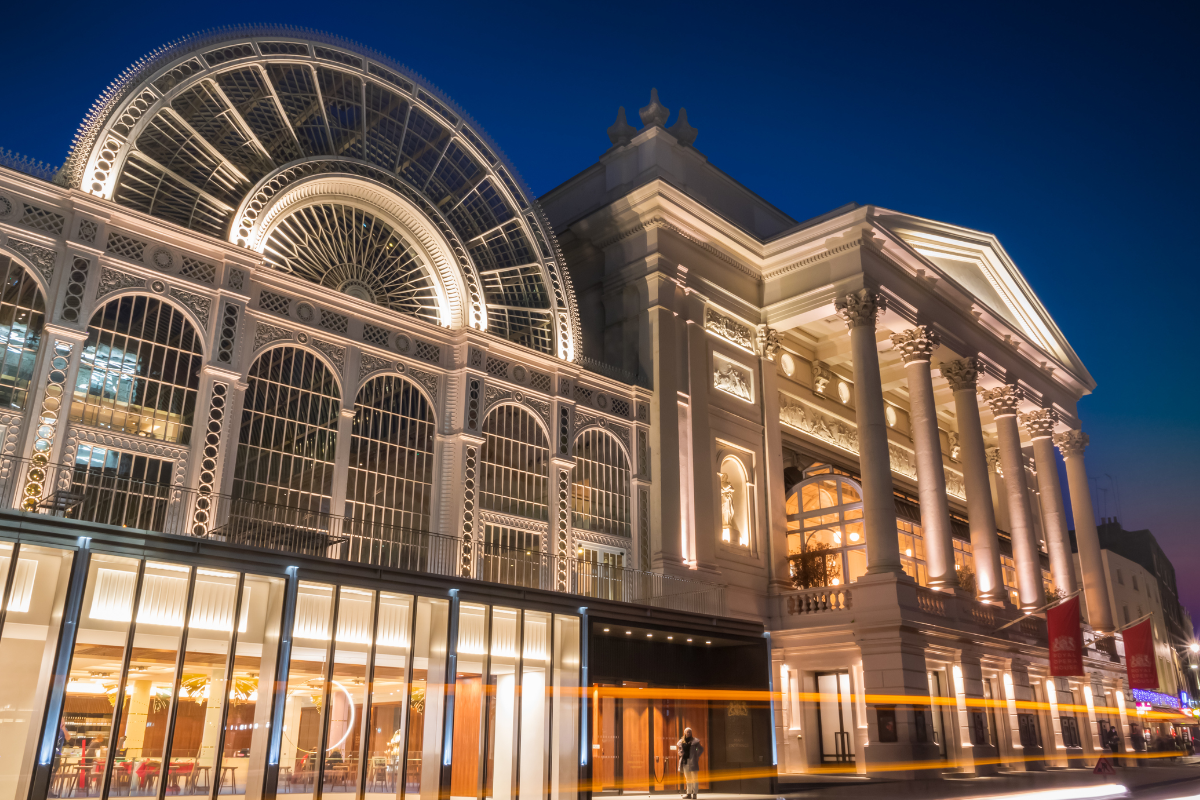
Royal Ballet and Opera is located in London's Covent Garden
Photo: Victor Huang/iStock
Royal Opera House announces name change
Change of name to the Royal Ballet and Opera forms part of a series of measures designed to increase income for the organisation in the face of a decline in public subsidy levels.
The Royal Opera House has changed its name to Royal Ballet and Opera in a move to celebrate the institution in its entirety and boost ticket sales, members of its leadership team have said.
According to the company’s Chief Executive, Alex Beard, the first name change for almost 80 years is a “long overdue” move to bring ballet into the organisation’s name.
“The Royal Ballet and The Royal Opera have performed under the same roof since 1946 and both companies now enjoy the prominence that they rightfully deserve,” he said. “The whole of the Royal Ballet and Opera is far more than the sum of our parts. We may perform at the Royal Opera House, but three quarters of what we do is experienced by people outside this building.”
READ MORE:
- Royal Opera House seeks income boost through brand licensing drive
- Donor revenue for cultural sector falls by a quarter
Speaking to The Times, Beard said research undertaken a year ago found few people knew the Royal Ballet and Royal Opera House were linked.
Meanwhile, the organisation’s first Chief Commercial Officer, Sophie Wybrew-Bond, says the rebranding is also part of a mission to boost box office revenue by attracting visitors who didn’t know the ballet and opera were connected.
Wybrew-Bond told Bloomberg that by “being clear in our expression of what’s here, we’ve got a better chance of driving brand relevance”. She added the institution is planning to offer businesses the opportunity to sponsor a series of short documentaries, planned for release online and on social media, as well as targeting streaming platforms such as Netflix to show filmed performances.
Targeting sponsorship from tech firms, fashion brands and financial service companies who would benefit from dual branding is also on the cards, with ideas to be pitched including a series of videos about costume or set design.
“The costs of running this place are going up, and the public subsidies are going down in real terms, so we have to fill that gap,” Wybrew-Bond said.
Royal Ballet and Opera suffered an over 10% cut in its Arts Council England (ACE) National Portfolio funding for the 2023-26 period. In the wake of the reduction, it announced a strategy to generate increased income through its brand and commercial activities.
In his interview with the Times, Beard revealed the cost of running the building’s two theatres and foyers has increased from £12m to £16m in the last five years, due to increased energy bills, operational costs and repayments beginning for the government’s pandemic support loan.
Assorted commercial activities currently account for 20% of the organisation’s income, Beard added, more than ACE’s public subsidy, which equates to around 16%.
Educational programme
The Royal Ballet and Opera is planning its biggest year of learning initiatives to date in 2025.
With next year coinciding with its 40th year of delivering learning programmes, the institution plans to extend its flagship programme to reach more schools nationwide and host seven Schools’ Matinees of a Royal Opera House Performance while offering discounted tickets and travel grants.
It will also reintroduce Create Day, a large single national school event, grow the reach of its Chance to Dance programme and expand its Creative Exchange programme, which targets commonly underrepresented groups in the arts to create a collaborative performance piece representing different life experiences.
Jillian Barker, Royal Ballet and Opera’s Director of Learning and Participation, said that at a time when arts education in schools is squeezed and specialist teachers are in decline, “it is more important than ever to strive to reach more children and young people”.
“We are redoubling efforts to offer high quality opportunities to any primary school in the country, inspiring children and building the creative confidence of teachers and opening the opportunity to discover ballet and opera,” Barker added.
New season
Royal Ballet and Opera has also released its 2024/25 programme, set to begin on 2 September.
The Royal Opera will feature eight new productions and a European premiere, alongside a world premiere of Festen, an adaptation of the 1998 cult film of the same name. The opera’s Director, Oliver Mears, says such productions “reaffirms our commitment to new opera”.
Meanwhile, eight new works will be added to The Royal Ballet. “As ever, audiences will have the chance to witness world-class performances by our remarkable dancers. There really is something for everyone,” the ballet’s Director Kevin O’Hare said.
Join the Discussion
You must be logged in to post a comment.